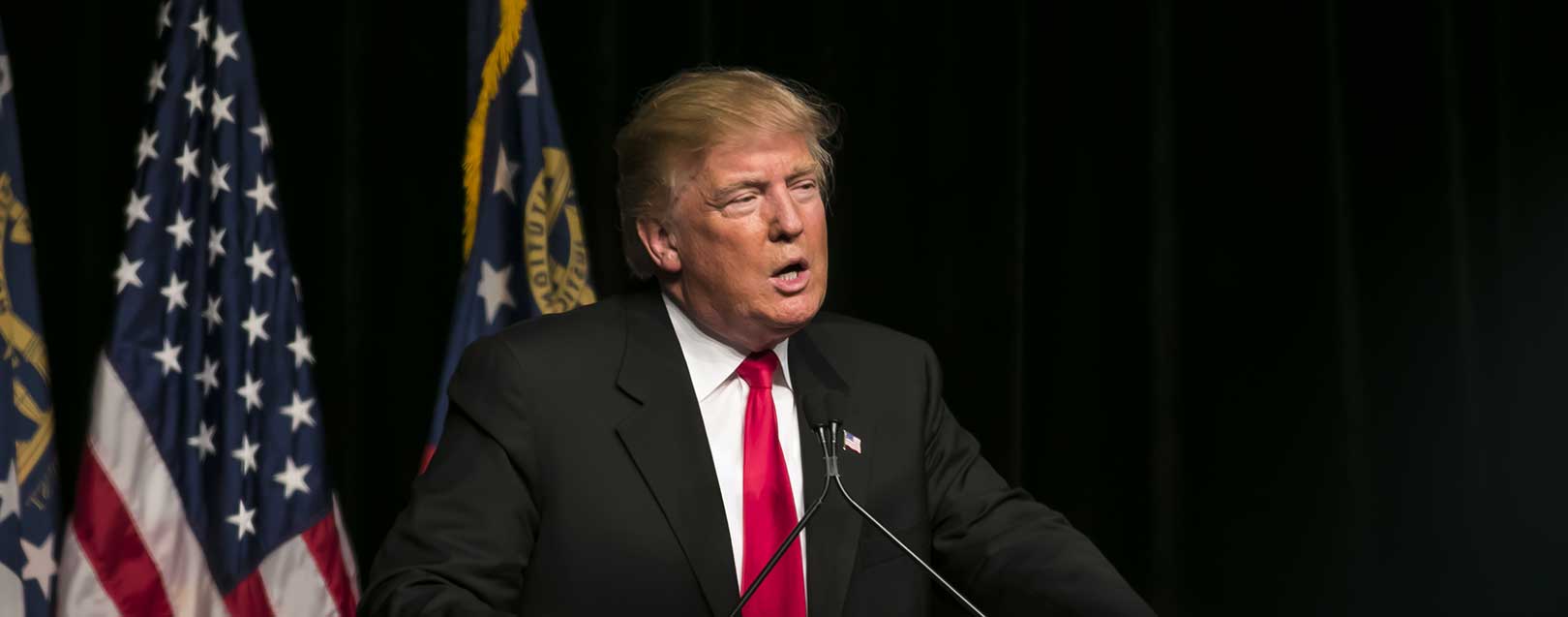
US moves out from Paris climate pact; business leaders condemn the move
The Dollar Business Bureau
True to his promise President Donald Trump decided to withdraw United States from the Paris Accord 2015 global agreement, a step that attracted condemnation from its allies, business leaders and world over.
During his election campaign, Trump had promised to take US out of the landmark agreement to fight climate change in his initial 100 days as President. Though not all he had promised in his campaign has sailed smoothly, this one has shown some signs of hesitation. Finally, not in the promised time line, but after 132, he did it.
However, Trump was open to another option open to discuss a new deal which, in his view, is "fair" to the interests of America.
“In order to fulfill my solemn duty to protect America and its citizens, the United States will withdraw from the Paris climate accord but begin negotiations to re-enter either the Paris accord or an entirely new transaction on terms that are fair to the United States, its businesses, its workers, its people, its taxpayers,” Trump said.
“We're getting out, but we will start to negotiate and we will see if we can make a deal that's fair. If we can, that's great. If we can't, that's fine,” he added.
The President argued that the Paris pact would ‘punish’ the US and would introduce ‘onerous energy limitations that would stop economic growth, particularly in the manufacturing industries.
He also claimed that fulfilling the greenhouse gas emission criteria of the Paris accord would cost America around $3 trillion in lost GDP (gross domestic product) and about 6.5 million industrial jobs.
Setting aside the world, Trump kept his pledge of “America first” by putting the interests of America above all else.
Vice President Mike Pence defending the actions of the President said that the decision on climate agreement was an example of the President who puts what he sees, as the interests of the US above all else.
“Our President is choosing to put American jobs and American consumers first. Our president is choosing to put American energy and American industry first. And by his action, President Trump is choosing to put the forgotten men and women first,” Pence said.
A matter of Principle or Business?
While Trump’s explanation for leaving the climate agreement was, in part, that it would affect the manufacturing and cost jobs in the US, some business leaders have other views and criticised Trump’s decision to exit the climate accord, with two high-profile business executives quitting the advisory council of the US President.
Elon Musk, the CEO of SpaceX and Tesla, quit two of Trump's business advisory councils, shortly after Trump had announced the pull out of the U.S. from the historic climate agreement.
“Am departing presidential councils. Climate change is real. Leaving Paris is not good for America or the world,” Musk declared on Twitter.
Musk had earlier vowed to quit the advisory councils if President Trump pulled out of the climate pact.
Musk was among the 18 business leaders serving on the Chief Business Advisory Council of the US President, also called the Strategic and Policy Forum. He was also advising the President on manufacturing jobs initiatives, and has met with Trump to discuss about infrastructure spending.
Just hours after Musk, Disney CEO Bob Iger also announced his resignation from the Strategic and Policy Forum.
“As a matter of principle, I've resigned from the President's Council over the #ParisAgreement withdrawal,” Iger said on Twitter.
However, the decision of Musk to leave the council is considered a bold move from a person who has a lot at stake.
His company, SpaceX, has acquired numerous lucrative government contracts in the past few years. Currently, the company is completing a $1.6 billion contract with the space agency NASA for sending supplies to International Space Station (ISS). It has also a contract worth $82.7 million for sending a US Air Force satellite in space by 2018. Last month, the company had launched a satellite for the US intelligence agency.
But transitioning the global sustainable energy is the core of Musk’s personal brand - Tesla.
Tesla is not just an automotive company, but Musk sees its future as an energy company, and not just an electric car company. With this vision, Tesla acquired energy storage company SolarCity for $2.6 billion last November.
In addition, Tesla is building a Gigafactory with Panasonic in the Nevada, which is expected to produce a new, cheaper breed of lithium-ion batteries.
The energy business of Tesla is bringing a lot of returns for Musk. If we look at the 2016 battery revenue of Tesla, it was $97 million, which shot up 572% as compared to $14.5 million in 2015. This is equivalent to around 1.4% of Tesla's total $7 billion revenue in 2016.
Tesla aims to make the intermittent solar energy more reliable and affordable compared to traditional fossil fuels. Musk reiterated his vision that the world is shifting toward the use of green energy, when last month his company started accepting deposits for its Solar Roof, a unique roof system that turns sunlight into electricity to power homes.
The prices of solar and wind energy is now cheaper or just the same as fossil fuel and is encouraging companies across the world to establish more plants to harvest it. Solar and wind is now cheaper or the same price than fossil fuel capacity in over 30 countries, said the WEF in a report.
The US is adding around 125 solar panels every minute, as per the Solar Energy Industry Association and investments in renewable energy rose to $286 billion in 2015, up 5% compared to a year before.
With all the future focus on renewable energy and business investments targeted at projects on energy, Musk’s decision to quit from the Trump’s advisory council is it a matter of principle or is it out of concern on the planet’s future?
Whatever the case may be, global warming is a reality and should be brought back into the real-world argument on what to do about it and at what cost.
This is a debate with which all other countries should continue to engage.






 to success.
to success.